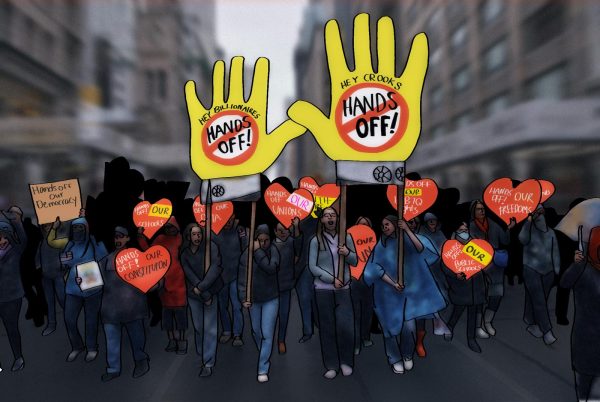Overworking is Overrated
Many high school students experience the effects of overworking, an ongoing academic trend ruining students’ potential.
As the locks turn and the doors to high school open, students unzip their backpacks and get straight to work. Accumulating infinite tabs on their browsers and putting in long, strenuous hours of work seems like a hobby to many high school students. What they may view as a good habit that helps them stay productive could be more hurtful to their health than they think.
There is a dilemma many students face as a result of the overworking trend. Students experience stress when they are not working constantly or when they allow themselves time for self-care. They feel as if the time they use to enjoy themselves is being wasted if it is not used for studying.
“I have felt it myself. That feeling that you are wasting time during your breaks or when you have time to yourself just drains you of any motivation or sense of self you may have had at the moment,” freshman Genesis Javier said.
It is apparent that the unhealthy prioritization of letter grades and grade point averages over one’s well-being has gotten out of hand. The normalization of not sleeping or eating just for the satisfaction of hitting that turn-in button is depicted in the majority of students.
Despite the fact that most students endure this pressure, students in the International Baccalaureate program experience it most consistently. Known as some of the most demanding courses one can take, IB classes require more hard work and dedication than most classes. This means that IB students must complete an excessive amount of assignments and study for rigorous assessments. Unfortunately, this program has been labeled as too intense for those easily overwhelmed by large workloads; even the most driven IB students find it difficult to maintain a healthy balance between their academics and social lives.
“As a student who attends IB classes and is part of the program, I acknowledge the larger workload. The demanding nature of courses marked as IB is not fit for students who are not on top of their responsibilities,” freshman Jasmin Abu said.
Cavaliers often boast about their lack of sleep, not realizing that their glorified habits are a serious concern. The problem that presents itself is not the fact that students choose to talk about their workload, but rather that they overshare their experiences, constantly trying to one-up each other. Overworking should not be a competitive sport where students score points based on how little they take care of themselves.
“Many students brag about their lack of sleep or unhealthy eating habits, not knowing the detriment it could cause them. This then turns into an issue when they experience burnout and enter a dark place,” freshman Valentina Jimenez said.
It is apparent that the root of the problem is the expectations that were set by those before us, such as parents or teachers. Indeed, we are expected to be overachievers. We are expected to sign up for the most Advanced Placement classes that can be fit into our schedules, join a multitude of clubs, most of which do not interest us, join at least a couple of sports and achieve a GPA of 4.0.
The fact of the matter is that students are programmed to instantly be drawn to the most challenging possible path for their education. This is most likely because they have been taught their whole lives that this path is that of a successful person, which is a huge misconception. Once a student begins to feel overwhelmed because their chosen path is not a good fit, their performance in school can plummet. This is due to the extreme dependence of a student’s success on their mental and physical health.
“Even as a kid I was encouraged by my parents to join the IB program and take these intense courses in hopes that it would take me farther in life,” freshman Genesis Javier said.
Many people are attempting to speak out on the matter, using the common phrase “let kids be kids”. While this principle seems to be applied to elementary and middle schoolers, it is seemingly completely disregarded in high school. However, high school students are still kids, who have needs for proper development. These needs are imperative in preparing teens for adulthood, not just college.
Instead of continuing on this destructive path, students should acknowledge that their health is important and should strive to feel comfortable having time for themselves. The goal we should be setting is to have a healthy balance between academics and lifestyle. As for parents, teachers, and administrators, their objective, in the long run, should be to focus on pushing students to achieve greatness while not draining them of their livelihood and academic potential in the process.
Your donation will support the student journalists of Coral Gables Senior High School. Your contribution will help us cover our annual website hosting costs.

Joseph Abrahantes is a junior in the International Baccalaureate program. Returning for his third year as a CavsConnect staff member, Abrahantes hopes...








